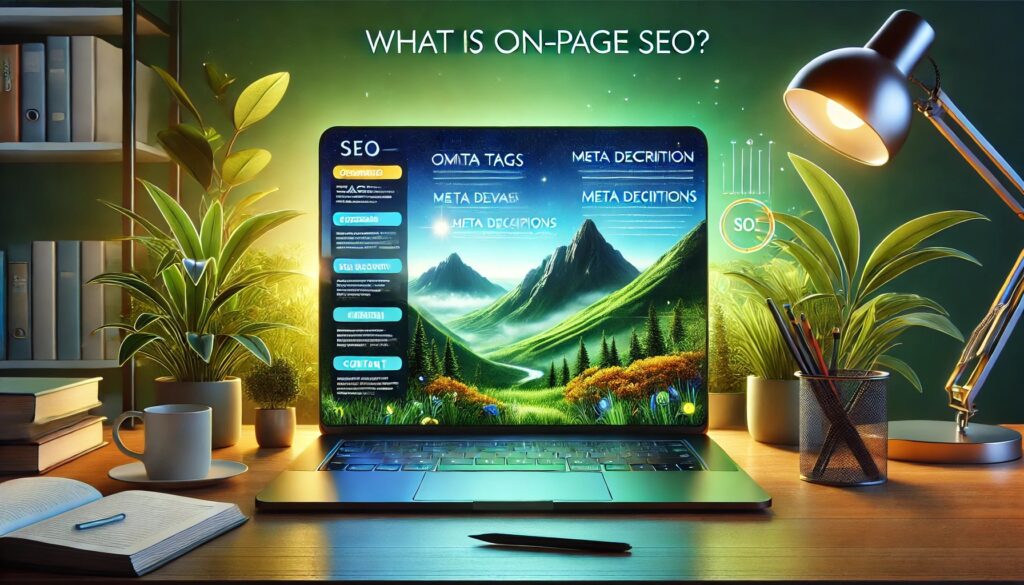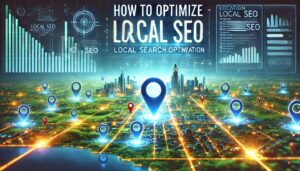Search Engine Optimization (SEO) is the cornerstone of digital marketing success. But when it comes to crafting an effective SEO strategy, the debate often revolves around two critical components: on-page SEO and off-page SEO. Both are essential, but they serve distinct purposes in helping your website rank higher on search engine results pages (SERPs).
So, what is the key difference between on-page SEO and off-page SEO? Simply put, on-page SEO focuses on optimizing elements within your website, while off-page SEO is all about building authority and relationships outside of it. In this guide, we’ll break down these two pillars, provide practical examples, and explain how they work together to boost your online visibility.
What is On-Page SEO?
On-page SEO refers to the optimization of individual web pages to improve rankings and attract organic traffic. It deals with everything you control directly on your website, from content creation to HTML source code. Think of it as making your site user-friendly and search engine-friendly.
Key elements of on-page SEO include:
- Keywords: Targeting relevant search terms.
- Title Tags and Meta Descriptions: Writing compelling titles and descriptions to improve click-through rates.
- Internal Linking: Connecting pages within your site to improve navigation and spread link equity.
- Content Quality: Publishing high-value, original content tailored to your audience.
For a deeper dive into SEO fundamentals, check out our SEO Definition.
What is Off-Page SEO?
Off-page SEO involves activities that happen outside your website but impact your rankings. It focuses on building credibility and authority by earning links, mentions, and traffic from other websites.
Key elements of off-page SEO include:
- Backlinks: Getting links from reputable sites to improve domain authority. Learn more about what is link building.
- Social Signals: Engaging users on platforms like Facebook, Twitter, and LinkedIn.
- Brand Mentions: Getting your brand referenced across trusted sources.
Off-page SEO is about making your website trustworthy in the eyes of search engines.
On-Page and Off-Page SEO Examples
Here are practical on-page and off-page SEO examples to illustrate the differences:
On-Page SEO Examples:
- Writing a blog post optimized for a specific keyword (e.g., “best coffee shops in NYC”).
- Creating clear and engaging title tags like “10 Coffee Spots in NYC You Must Try.”
- Improving your website’s mobile responsiveness to enhance user experience.
Off-Page SEO Examples:
- Earning backlinks from food blogs that link to your coffee shop guide.
- Sharing your post on Instagram and receiving comments and shares.
- Getting a shoutout from a local influencer who links to your website.
Both examples highlight the complementary nature of on-page and off-page SEO.
On-Page SEO Samples
Some of the most effective on-page SEO samples include:
- Optimized Blog Posts: Crafting articles with keywords placed naturally in headings, subheadings, and content.
- Landing Pages: Designing pages with clear calls-to-action and targeted keywords.
- Product Descriptions: Writing unique and detailed descriptions for e-commerce products.
These samples demonstrate how on-page SEO aligns content with user intent, improving both rankings and engagement.
Off-Page SEO in Action
While on-page SEO builds the foundation, off-page SEO amplifies your reach. Here’s how:
- Building Relationships: Collaborate with bloggers and journalists to secure high-authority backlinks.
- Directory Listings: Add your business to local directories to enhance local search visibility.
- Content Promotion: Share your articles on social media to encourage link sharing and brand mentions.
By integrating both types, you create a strategy that drives sustainable growth.
Main Types of On-Page and Off-Page SEO Techniques
On-Page SEO Techniques:
- Content Optimization: Create content that answers user queries and incorporates target keywords naturally.
- HTML Tags: Use header tags (H1, H2, H3) to structure your content for better readability.
- Image Optimization: Compress images and add alt tags for accessibility and SEO.
Off-Page SEO Techniques:
- Guest Posting: Write articles for other sites with links back to your own.
- Influencer Outreach: Partner with influencers to share your content.
- Social Bookmarking: Share content on platforms like Reddit and Pinterest to drive traffic.
These techniques ensure a balanced approach to SEO.
Why Both On-Page and Off-Page SEO Are Important
Focusing on just one type of SEO isn’t enough. Here’s why:
- On-Page SEO: Ensures your website is optimized for search engines and provides value to visitors.
- Off-Page SEO: Establishes your site’s credibility and authority through external validation.
For example, even the most well-optimized content (on-page SEO) won’t rank if it doesn’t have backlinks or social proof (off-page SEO). Similarly, a site with excellent backlinks but poor user experience won’t perform well in the long run.
How to Strike the Right Balance
The key to a successful SEO strategy is finding the right balance between on-page and off-page efforts. Start by focusing on strong on-page foundations—quality content, proper keyword usage, and technical optimization. Then, amplify your efforts with off-page tactics like link building and social promotion.
Conclusion
Understanding what is on-page SEO and what is off-page SEO is essential for crafting an effective SEO strategy. While on-page SEO lays the groundwork, off-page SEO builds authority and trust, making both crucial for success.
By integrating these strategies and implementing actionable steps, you can drive traffic, improve rankings, and establish your website as a credible source in your niche. Ready to optimize? Start by assessing your current SEO efforts and identifying opportunities for improvement across both on-page and off-page channels.









